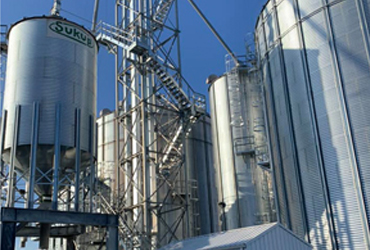We are Manufacturer, Supplier, Exporter of Grain Handling Systems and our setup is situated in Sangli, Maharashtra, India.
Grain handling Systems are crucial components of agricultural infrastructure, particularly in regions where grain production is significant. These Systems are designed to efficiently transport, store, and process grains such as wheat, corn, rice, barley, and oats from farm to market.
Here's an overview of the components typically found in grain handling Systems :




